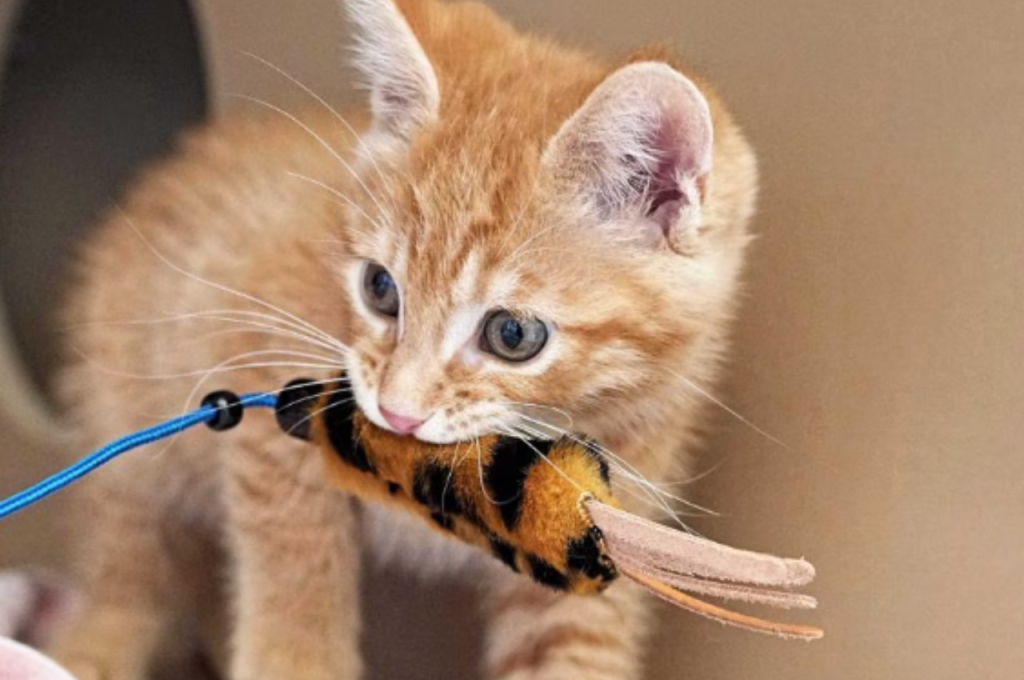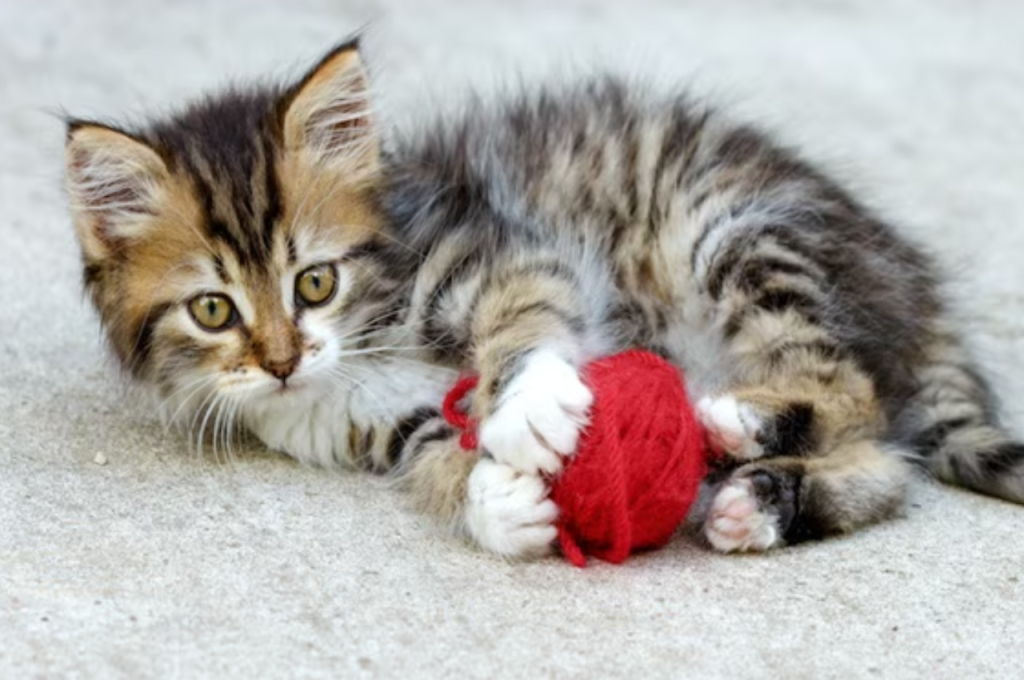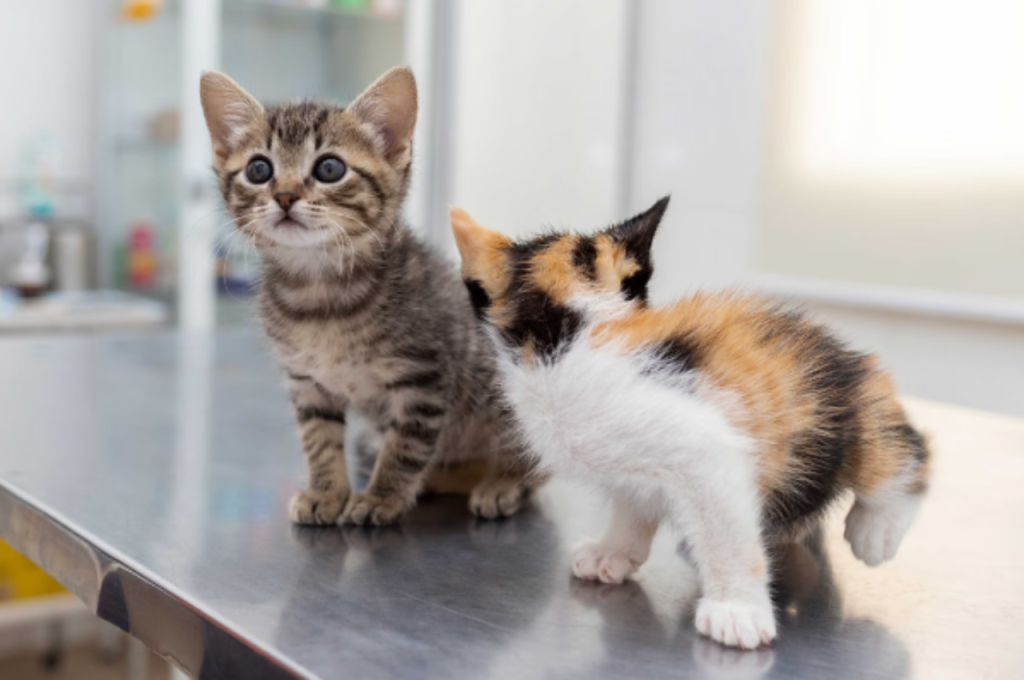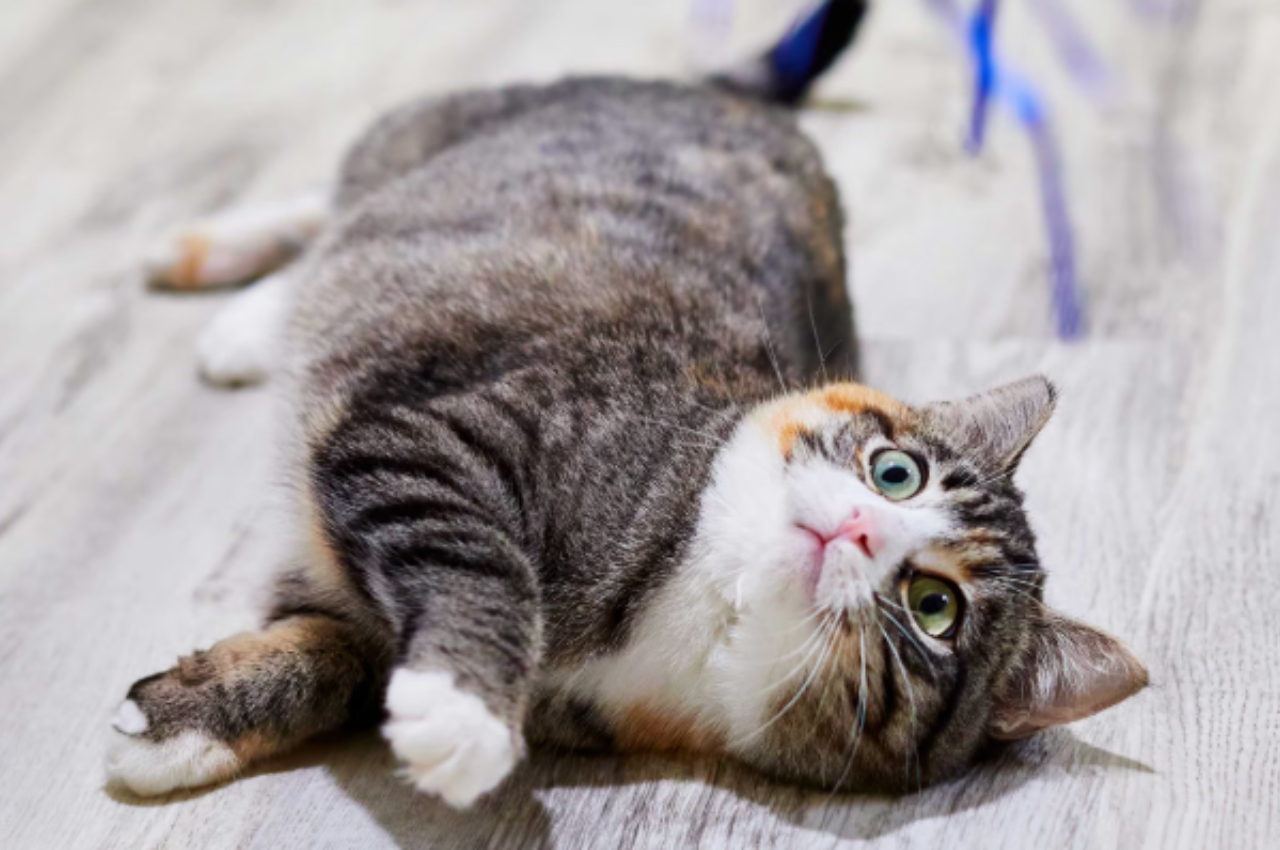To calm a hyperactive kitten, provide plenty of playtime and mental stimulation through interactive toys and games. Additionally, create a calm and structured environment by establishing a routine for feeding, playtime, and sleep.
Regular exercise is essential to help the kitten burn off excess energy use toys like laser pointers or feather wands to keep them engaged. Once the playtime is over, offer a cozy, quiet space for your kitten to rest. Make sure the area is comfortable and away from loud noises or distractions. Introducing calming aids, like pheromone diffusers or soft music, can also help soothe your kitten when they seems overly energetic. Establishing a balance between activity and rest will encourage a more relaxed and well-adjusted kitten.
The Purr-fect Storm: Recognizing Hyperactivity
Recognizing hyperactivity in cats can help you address their needs. Signs include excessive running, jumping, or vocalizing, often paired with destructive behavior like scratching furniture or knocking objects over. Hyperactive cats may also display restlessness and an inability to settle. Providing mental stimulation, toys, and regular playtime can help manage this high energy and keep your cat balanced.

Signs of a Hyperactive Kitten
A hyperactive kitten can exhibit several signs that set them apart from their more sedate counterparts. Constant movement, excessive meowing, and destructive behavior are common indicators. Additionally, aggressive play, inability to relax, and short attention span may also signal hyperactivity.
Normal Play vs. Hyperactivity: Understanding The Difference
It’s important to differentiate between normal kitten play and hyperactivity. Normal play involves short bursts of energy, interactive play with toys, and periods of rest in between. On the other hand, hyperactive behavior is characterized by incessant activity, destructive tendencies, and an inability to settle down.
Why So Energetic? Unraveling The Causes
Calm a hyperactive kitten by providing them with a dedicated playtime and toys to keep them occupied. Avoid over-stimulating them with loud noises and excessive handling, and consider providing calming supplements or seeking advice from a veterinarian if necessary.
When it comes to hyperactive kittens, it can be both amusing and exhausting to witness their constant energy. But have you ever wondered why some kittens are more energetic than others? In this section, we will delve into the causes behind their boundless energy, exploring the role of genetics and breed specifics, as well as environmental triggers.
Genetics and Breed Specifics
Genetics play a significant role in determining a kitten’s energy levels. Different cat breeds have distinct genetic traits that can influence their activity levels. For instance, breeds like the Bengal, Siamese, and Abyssinian are known for their high energy and playful nature. These breeds often have a genetic predisposition towards being more active and restless.
On the other hand, some breeds, such as the British Shorthair or the Ragdoll, are generally calmer and less prone to hyperactivity. These variations in energy levels can be attributed to the genetic makeup of each breed. So, if you find yourself with a hyperactive kitten, it may be a result of their breed’s genetic predisposition towards being more active.
Environmental Triggers
Apart from genetics, environmental factors can also contribute to a kitten’s hyperactivity. Kittens are naturally curious and playful creatures, and their surroundings can greatly impact their energy levels. Here are a few environmental triggers that can make a kitten more hyperactive:
- Stimulation: Lack of mental and physical stimulation can lead to pent-up energy in kittens. Ensuring that your kitten has plenty of toys and playtime can help channel their energy in a positive way.
- Noise and Commotion: Loud noises or a chaotic environment can make kittens more prone to hyperactivity. Providing a calm and quiet space for your kitten to relax can help reduce their restlessness.
- Unstructured Routine: Kittens thrive on routine and structure. A lack of consistency in feeding, playtime, and sleep schedules can disrupt their natural rhythm and contribute to hyperactivity. Establishing a regular routine can help calm a hyperactive kitten.
- Stress and Anxiety: Just like humans, kittens can experience stress and anxiety. Changes in their environment, such as moving to a new home or the introduction of new pets, can trigger hyperactivity. Creating a safe and secure environment for your kitten and providing them with plenty of reassurance can help alleviate their anxiety.
Understanding the causes behind a hyperactive kitten’s behavior is crucial in effectively calming them down. By considering the role of genetics and breed specifics, as well as environmental triggers, you can create a harmonious and balanced environment for your furry friend.
Creating a Zen Zone: The Right Environment
Safe Spaces For Rest
Creating a safe and comfortable space for your hyperactive kitten to rest is essential. Choose a quiet area away from high-traffic zones and noise. Provide a cozy bed or blanket where your kitten can feel secure and relaxed.
The Importance Of A Quiet Corner
A quiet corner can serve as a sanctuary for your kitten. Consider designating a specific area in your home where your kitten can retreat when feeling overwhelmed. Ensure this space is free from loud noises and sudden movements.
Play Therapy: Channeling The Energy Positively
Interactive Toys: A Must-have
Kittens are naturally full of energy, and providing them with interactive toys is essential to help them expend that energy in a positive way. Toys such as feather wands, laser pointers, and puzzle feeders are great options to keep your hyperactive kitten engaged and entertained.

Scheduling Playtime: A Routine Helps
Establishing a regular playtime schedule for your hyperactive kitten can help them release their energy in a controlled manner. Creating a routine for play sessions can also prevent them from becoming overly stimulated at odd hours, leading to a more calm and content kitty.
Bonding Through Brushing: a Calming Ritual
When it comes to calming a hyperactive kitten, Bonding Through Brushing can work wonders. This ritual not only helps in grooming but also strengthens the bond between you and your furry friend.
Choosing The Right Brush
Ensure the brush has soft bristles to avoid hurting the kitten’s delicate skin.
Making Grooming A Soothing Experience
Establish a routine for grooming sessions to make it a calming ritual.
The Magic Of Music and Sounds
Discover the magic of music and sounds to soothe a hyperactive kitten. Gentle melodies and calming tones can create a peaceful environment, helping your feline friend relax and unwind naturally. Implementing these auditory techniques can work wonders in calming your energetic kitten.
Kittens are known for their high energy levels, and while it can be cute and entertaining to watch them play and run around, it can also be exhausting for pet owners, especially when they become too hyperactive. Fortunately, there are several ways to calm a hyperactive kitten, and one of the most effective methods is through the use of music and sounds.
Soothing Melodies For Kittens
Just like humans, kittens can find comfort and relaxation in soothing melodies. Playing calming music can help to reduce their anxiety and stress levels, making them more relaxed and calm. Soft classical music, such as Beethoven or Mozart, can be an excellent choice for calming a hyperactive kitten. Alternatively, there are several playlists available online that are specifically designed for cats, which can be a great option as well.
The Effectiveness Of White Noise
White noise is another effective method for calming a hyperactive kitten. White noise is a type of sound that contains all audible frequencies, and it can help to drown out other noises that may be causing your kitten to become hyperactive.
For example, if your kitten is becoming anxious due to outside noises, such as cars or birds, white noise can help to mask those sounds and create a more peaceful environment. There are several white noise machines available on the market that are specifically designed for pets, or you can download white noise apps on your phone or tablet. Overall, music and sounds can be an excellent way to calm a hyperactive kitten. Whether it’s soft classical music or white noise, these methods can help to reduce anxiety and stress levels, creating a more peaceful environment for your pet. Give it a try and see how effective it can be in calming your furry friend.
Nutritional Nudges Towards Calmness
To calm a hyperactive kitten, provide nutritional nudges by offering high-quality, balanced meals and incorporating calming supplements like chamomile or CBD. Engage in regular play sessions to release excess energy and promote relaxation, creating a calming environment with soothing music and cozy hiding spots.
Dietary Adjustments
When dealing with a hyperactive kitten, making nutritional adjustments can help promote calmness. Consider incorporating specific nutrients in their diet.
Treats That Promote Relaxation
- Explore special treats that contain ingredients like chamomile or tryptophan.
- Hyperactive kittens can benefit from dietary adjustments and calming treats to help them relax.
Seeking Professional Guidance
To effectively address hyperactive behavior in kittens, seeking professional guidance is crucial for ensuring the well-being of your pet.
When To Consult A Vet
If your kitten’s hyperactivity is excessive or causing distress, consult a vet promptly.
Behavioral Training With A Professional
Engage a professional trainer to help modify your kitten’s hyperactive behavior effectively.

Conclusion
Hyperactivity in kittens can be managed effectively with patience, consistency, and positive reinforcement. By providing plenty of playtime, mental stimulation, and a comfortable environment, you can help your kitten to calm down and develop good behavior habits. Remember to avoid punishment and instead focus on rewarding good behavior to encourage your kitten to continue to improve.
With these tips, you can help your hyperactive kitten become a happy and well-behaved member of your family.
